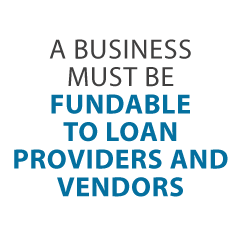- Connect With Us!
- (877) 600-2487
- info@creditsuite.com
Corporate Credit Building
Published By Janet Gershen-Siegel at February 5th, 2018
Get Started with Corporate Credit Building
Corporate credit building can help your business achieve its greatest potential. We have the lowdown on just what goes into the process.
Business credit is credit in a small business’s name. It doesn’t connect to an entrepreneur’s personal credit, not even when the owner is a sole proprietor and the solitary employee of the business.
Hence, a business owner’s business and individual credit scores can be very different.
The Benefits of Corporate Credit Building
Because company credit is separate from consumer, it helps to secure a business owner’s personal assets, in case of court action or business insolvency.
Also, with two separate credit scores, a small business owner can get two separate cards from the same merchant. This effectively doubles purchasing power.
Another advantage is that even startups can do this. Heading to a bank for a business loan can be a formula for frustration. But building small business credit, when done correctly, is a plan for success.
Individual credit scores depend on payments but also additional elements like credit usage percentages.
But for small business credit, the scores actually just hinge on whether a small business pays its bills on time.
Corporate Credit Building: The Process
Establishing small business credit is a process, and it does not occur automatically. A business will need to proactively work to build business credit.
However, it can be done readily and quickly, and it is much more rapid than establishing individual credit scores.
Merchants are a big component of this process.
Doing the steps out of order will cause repetitive rejections. Nobody can start at the top with small business credit. For example, you can’t start with retail or cash credit from your bank. If you do, you’ll get a rejection 100% of the time.
Corporate Credit Building: Start with Company Fundability
A small business must be fundable to credit issuers and vendors.
Consequently, a small business will need a professional-looking website and e-mail address. And it needs to have site hosting bought from a supplier like GoDaddy.
And, company phone and fax numbers should have a listing on ListYourself.net.
Likewise, the business telephone number should be toll-free (800 exchange or the like).
A company will also need a bank account dedicated only to it, and it has to have all of the licenses essential for running.
Licenses
These licenses all have to be in the identical, correct name of the small business. And they need to have the same small business address and telephone numbers.
So keep in mind, that this means not just state licenses, but possibly also city licenses.
Learn more here and get started toward establishing company credit.
Corporate Credit Building and Dealing with the IRS
Visit the Internal Revenue Service website and obtain an EIN for the business. They’re free. Choose a business entity like corporation, LLC, etc.
A company can get started as a sole proprietor. But they will more than likely want to change to a sort of corporation or an LLC.
This is in order to reduce risk. And it will make the most of tax benefits.
A business entity will matter when it pertains to taxes and liability in case of a lawsuit. A sole proprietorship means the entrepreneur is it when it comes to liability and tax obligations. No one else is responsible.
Sole Proprietors Take Note
If you operate a business as a sole proprietor, then at the very least be sure to file for a DBA. This is ‘doing business as’ status.
If you do not, then your personal name is the same as the company name. Consequently, you can find yourself being directly responsible for all small business debts.
In addition, per the IRS, with this arrangement there is a 1 in 7 possibility of an IRS audit. There is a 1 in 50 chance for corporations! Steer clear of confusion and substantially decrease the odds of an IRS audit as well.
Kicking Off the Corporate Credit Building Process
Start at the D&B website and obtain a cost-free D-U-N-S number. A D-U-N-S number is how D&B gets a business into their system, to generate a PAYDEX score. If there is no D-U-N-S number, then there is no record and no PAYDEX score.
Once in D&B’s system, search Equifax and Experian’s websites for the business. You can do this at fastcs.wpengine.com/reports. If there is a record with them, check it for accuracy and completeness. If there are no records with them, go to the next step in the process.
By doing this, Experian and Equifax will have something to report on.
Vendor Credit Tier
First you must establish trade lines that report. This is also referred to as the vendor credit tier. Then you’ll have an established credit profile, and you’ll get a business credit score.
And with an established business credit profile and score you can start to get credit in the retail and cash credit tiers.
These kinds of accounts tend to be for the things bought all the time, like marketing materials, shipping boxes, outdoor work wear, ink and toner, and office furniture.
But to start with, what is trade credit? These trade lines are credit issuers who will give you initial credit when you have none now. Terms are normally Net 30, instead of revolving.
Therefore, if you get an approval for $1,000 in vendor credit and use all of it, you must pay that money back in a set term, like within 30 days on a Net 30 account.
Details
Net 30 accounts must be paid in full within 30 days. 60 accounts need to be paid completely within 60 days. Unlike with revolving accounts, you have a set time when you must pay back what you borrowed or the credit you made use of.
To begin your business credit profile properly, you ought to get approval for vendor accounts that report to the business credit reporting agencies. As soon as that’s done, you can then use the credit.
Then repay what you used, and the account is on report to Dun & Bradstreet, Experian, or Equifax.
Vendor Credit Tier – It Makes Sense
Not every vendor can help like true starter credit can. These are vendors that will grant an approval with nominal effort. You also need them to be reporting to one or more of the big three CRAs: Dun & Bradstreet, Equifax, and Experian. This is the easiest way to start corporate credit building.
You want 5 to 8 of these to move onto the next step, which is the retail credit tier. But you may have to apply more than one time to these vendors. So, this is to prove you are reliable and will pay promptly. Here are some stellar choices from us: https://oldcs.creditsuite.com/blog/5-vendor-accounts-that-build-your-business-credit/
Retail Credit Tier
Once there are 5 to 8 or more vendor trade accounts reporting to at least one of the CRAs, then move onto the retail credit tier. These are companies such as Office Depot and Staples.
Just use your Social Security Number and date of birth on these applications for verification purposes. For credit checks and guarantees, use the company’s EIN on these credit applications.
One example is Lowe’s. They report to D&B, Equifax and Business Experian. They want to see a D-U-N-S and a PAYDEX score of 78 or more.
Fleet Credit Tier
Are there 8 to 10 accounts reporting? Then move to the fleet credit tier. These are companies like BP and Conoco. Use this credit to buy fuel, and to repair, and maintain vehicles. Just use your SSN and date of birth on these applications for verification purposes. For credit checks and guarantees, make sure to apply using the small business’s EIN.
One such example is Shell. They report to D&B and Business Experian. They want to see a PAYDEX Score of 78 or higher and a 411 small business phone listing.
Shell might say they want a particular amount of time in business or profits. But if you already have enough vendor accounts, that won’t be necessary. And you can still get an approval.
Learn more here and get started toward establishing company credit.
Cash Credit Tier
Have you been sensibly handling the credit you’ve gotten up to this point? Then progress to the cash credit tier. These are companies such as Visa and MasterCard. Just use your Social Security Number and date of birth on these applications for verification purposes. For credit checks and guarantees, use your EIN instead.
One example is the Fuelman MasterCard. They report to D&B and Equifax Business. They want to see a PAYDEX Score of 78 or more. And they also want you to have 10 trade lines reporting on your D&B report.
Plus, they want to see a $10,000 high credit limit reporting on your D&B report (other account reporting).
Plus, they want you to have an established business.
These are service providers like Walmart and Dell, and also Home Depot, BP, and Racetrac. These are often MasterCard credit cards. If you have 14 trade accounts reporting, then these are doable.
Learn more here and get started toward establishing company credit.
Corporate Credit Building: Monitor Your Corporate Credit
Know what is happening with your credit. Make sure it is being reported and take care of any mistakes ASAP. Get in the practice of checking credit reports and digging into the details, and not just the scores.
We can help you monitor business credit at Experian and D&B for 90% less than it would cost you at the CRAs. See: fastcs.wpengine.com/monitoring.
At Equifax, you can monitor your account at: www.equifax.com/business/business-credit-monitor-small-business. Equifax costs about $19.99.
Update Your Record
Update the relevant information if there are mistakes or the information is incomplete. At D&B, you can do this at: https://iupdate.dnb.com/iUpdate/viewiUpdateHome.htm. For Experian, go here: www.experian.com/small-business/business-credit-information.jsp. So for Equifax, go here: www.equifax.com/business/small-business.
Corporate Credit Building: Fix Your Corporate Credit
So, what’s all this monitoring for? It’s to dispute any errors in your records. Errors in your credit report(s) can be corrected. But the CRAs generally want you to dispute in a particular way.
Get your business’s PAYDEX report at: www.dnb.com/about-us/our-data.html. Get your company’s Experian report at: www.businesscreditfacts.com/pdp.aspx?pg=SearchForm. And get your Equifax business credit report at: www.equifax.com/business/credit-information.
Disputes
Disputing credit report errors typically means you send a paper letter with copies of any proofs of payment with it. These are documents like receipts and cancelled checks. Never mail the original copies. Always send copies and retain the original copies.
Fixing credit report mistakes also means you precisely detail any charges you challenge. Make your dispute letter as crystal clear as possible. Be specific about the issues with your report. Use certified mail so that you will have proof that you sent in your dispute.
Dispute your or your small business’s Equifax report by following the directions here: www.equifax.com/small-business-faqs/#Dispute-FAQs.
You can dispute mistakes on your or your small business’s Experian report by following the instructions here: www.experian.com/small-business/business-credit-information.jsp.
And D&B’s PAYDEX Customer Service phone number is here: www.dandb.com/glossary/paydex.
A Word about Corporate Credit Building
Always use credit smartly! Never borrow beyond what you can pay off. Keep an eye on balances and deadlines for repayments. Paying off promptly and fully will do more to boost business credit scores than almost anything else.
Establishing business credit pays off. Great business credit scores help a small business get loans. Your lender knows the small business can pay its financial obligations. They know the company is bona fide.
The company’s EIN links to high scores and loan providers won’t feel the need to ask for a personal guarantee.
Takeaway for Corporate Credit Building
Business credit is an asset which can help your small business for many years to come. Learn more here and get started toward establishing corporate credit.

 " class="attachment-blog-single size-blog-single wp-post-image" alt="Get Business Credit Cards for New Businesses Credit Suite-Business Line of Credit Decoded" title="Get Business Credit Cards for New Businesses">>
" class="attachment-blog-single size-blog-single wp-post-image" alt="Get Business Credit Cards for New Businesses Credit Suite-Business Line of Credit Decoded" title="Get Business Credit Cards for New Businesses">>
